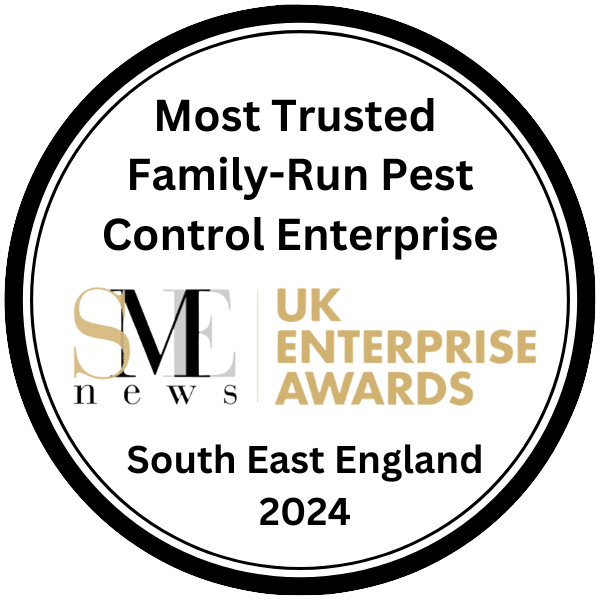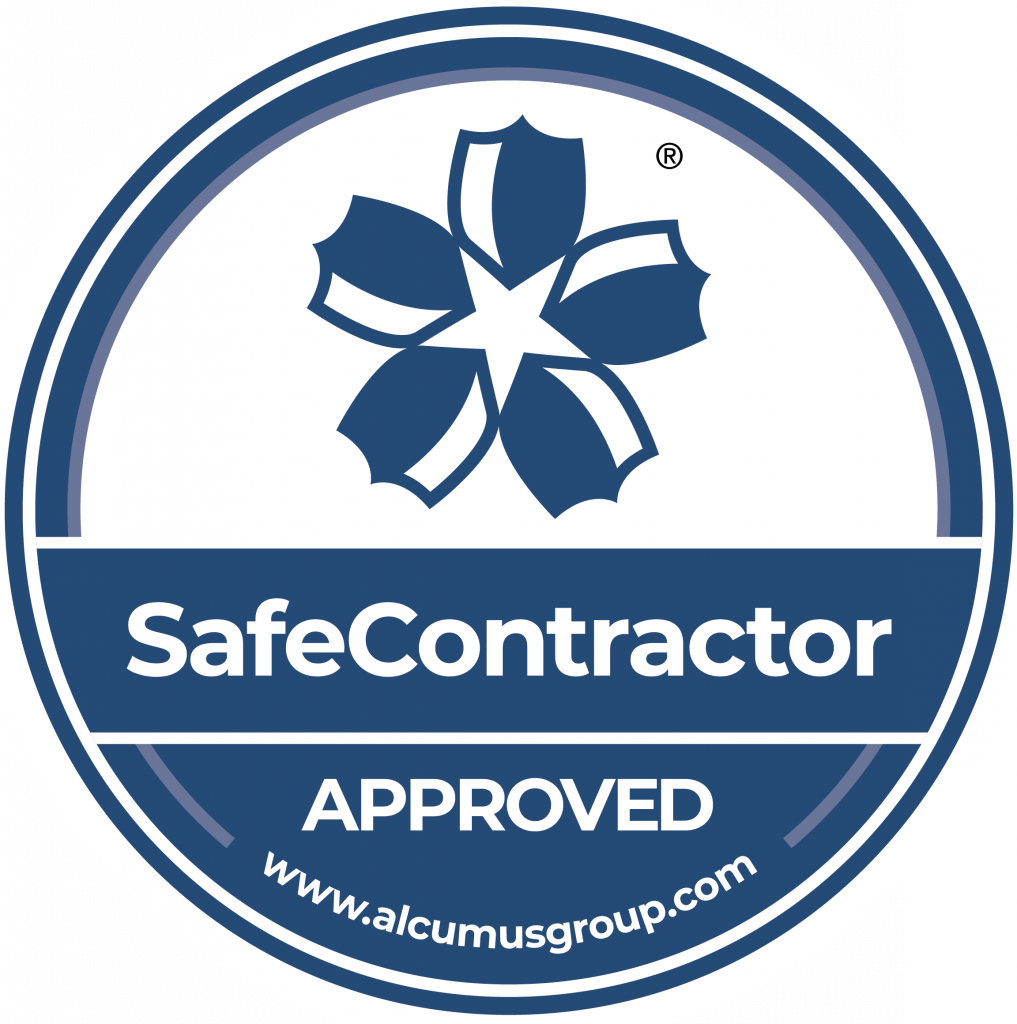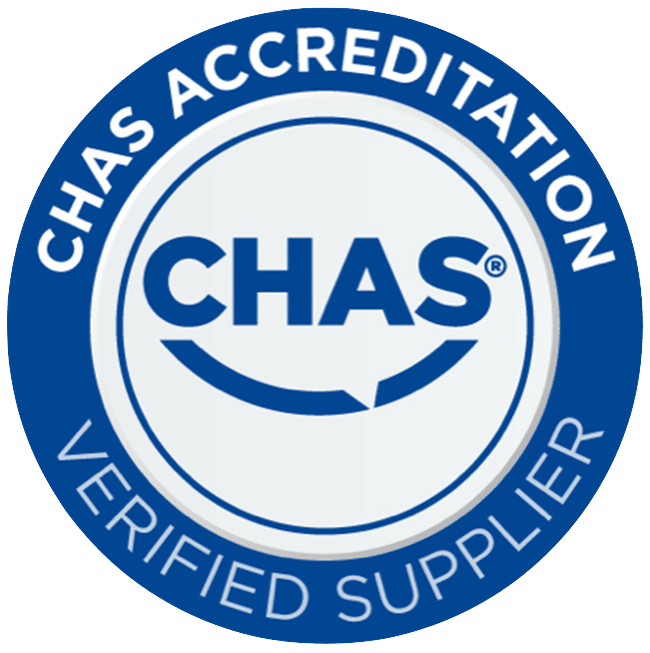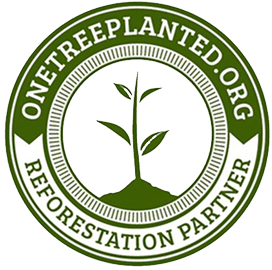London Environmental Health Officer Standards: Complete Professional Requirements Guide for 2025
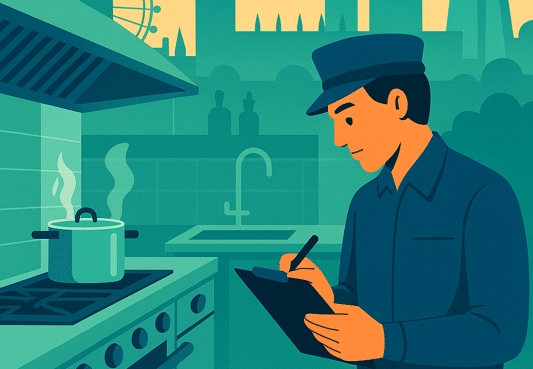
Ana Hasula – BioWise London Ltd – Pest Control
Ever wondered what qualifications and standards your local environmental health officer must meet when they visit your London business? Whether you’re a restaurant manager dealing with food safety inspections or a facilities manager handling housing compliance, understanding these professional standards isn’t just helpful—it’s essential for maintaining smooth operations and protecting public health. These standards also contribute to creating healthier environments for all Londoners.
London’s environmental health officers operate under some of the UK’s most rigorous professional standards, and for good reason. With over 30,000 food hygiene inspections conducted annually across the capital and countless housing, noise, and environmental assessments, these professionals safeguard public health for millions of residents and businesses.
This comprehensive guide breaks down the complex framework of London environmental health officer standards, from initial qualification requirements to ongoing professional development. You’ll discover how these standards directly impact your business interactions, what you can expect from qualified officers, and why these requirements exist to protect both businesses and communities.
Professional Registration and Qualification Standards
Understanding the qualification standards for environmental health officers in London starts with recognising that these aren’t just council employees with basic training. Every environmental health practitioner must meet stringent academic and professional requirements that take years to complete.
CIEH Accredited Degree Requirements Specific to London Boroughs
All environmental health officers working in London’s 32 boroughs must hold a degree accredited by the Chartered Institute of Environmental Health (CIEH). This isn’t a suggestion—it’s a legal requirement that ensures every officer has the scientific knowledge and practical skills needed to protect public health effectively.
The degree programmes cover essential areas including food safety, environmental protection, housing standards, and public health. Students typically need two or three A-levels in science or geography subjects, though degree apprenticeships offer an alternative route requiring 4 or 5 GCSEs at grades 9 to 4. For those with existing degrees in science-related fields, CIEH-accredited postgraduate MSc programmes provide a pathway into the profession.
What makes London’s approach particularly robust is the emphasis on practical application. Students must demonstrate competency across five core areas: food safety, public health and safety, housing, environmental protection, and occupational health. This ensures that when an environmental health officer visits your business, they possess both theoretical knowledge and hands-on experience.
Environmental Health Registration Board (EHRB) Registration Mandates
After completing their degree, aspiring environmental health professionals face another hurdle: the Environmental Health Registration Board (EHRB) registration process. This mandatory step involves completing at least 48 weeks of structured practical training in local authority environmental health services.
During this training period, candidates work under supervision in real council departments, building professional portfolios that demonstrate their ability to handle everything from food poisoning outbreaks to housing complaints. They must show competency in risk assessment, evidence gathering, legal procedures, and stakeholder communication—skills they’ll use daily when dealing with businesses and residents. As part of their practical training, officers are trained to carry out inspections and enforce compliance with food safety law, ensuring they can effectively uphold legal standards.
The registration process includes rigorous assessment of practical competencies and reflective practice. Officers must prove they can conduct effective food premises inspections, assess housing conditions using the Housing Health and Safety Rating System, and respond appropriately to environmental issues. Only after successfully completing exams, training, and portfolio assessment can they register as environmental health practitioners.
Continuing Professional Development (CPD) Requirements
London’s environmental health officers can’t simply qualify once and coast through their careers. The profession demands ongoing learning through mandatory Continuing Professional Development, with officers required to complete a minimum of 20 hours annually to maintain their registration. More information on CPD can be found at the CIEH CPD guidelines.
This CPD requirement ensures that environmental health professionals stay current with evolving legislation, emerging health risks, and new enforcement techniques. For businesses, this means the officer inspecting your premises possesses up-to-date knowledge of food safety standards, environmental regulations, and health and safety requirements.
CPD activities range from formal training courses and conferences to online learning modules and peer review sessions. Officers might attend workshops on new food allergen regulations, receive training on updated housing standards, or participate in cross-borough knowledge sharing initiatives. This continuous learning culture benefits businesses by ensuring consistent, expert advice and enforcement across London.
Professional Competency Framework Standards
Qualification Level | Requirements | Competency Areas | Registration Status |
|---|---|---|---|
Graduate Entry | CIEH-accredited degree | Basic knowledge across 5 core areas | Student member |
Practical Training | 48 weeks supervised experience | Portfolio development and assessment | Trainee practitioner |
Qualified Practitioner | EHRB registration | Full competency demonstration | Environmental Health Practitioner |
Chartered Status | Additional experience + leadership skills | Advanced expertise and management | Ch.EHO designation |
The competency framework ensures every environmental health officer meets consistent standards regardless of which London borough employs them. This standardisation means businesses operating across multiple boroughs can expect similar approaches to inspection, enforcement, and advice from qualified professionals.
London Borough Enforcement Standards
London’s environmental health enforcement operates under a coordinated framework that ensures consistent standards across all 32 boroughs while allowing for local adaptation. This structure provides businesses with predictable enforcement approaches and residents with reliable protection, regardless of location. Local government is responsible for ensuring these enforcement standards are met and maintained across all boroughs.
Mayor of London’s Environmental Health Policy Framework Requirements
The Mayor of London’s office sets overarching policy frameworks that all borough environmental health services must follow. These frameworks establish minimum service standards, performance targets, and priority areas for enforcement action across the capital. Details are available on the Greater London Authority (GLA) website.
Current priorities include tackling poor air quality in central London, improving food safety standards in high-risk areas, and addressing housing conditions in the private rented sector. Environmental health officers must align their enforcement activities with these strategic priorities while maintaining their statutory duties under national legislation.
The framework requires all boroughs to maintain adequate staffing levels, ensure officers receive appropriate training, and participate in London-wide initiatives. For businesses, this coordination means more consistent enforcement approaches and shared intelligence between boroughs, particularly important for companies operating multiple sites across London.
Greater London Authority (GLA) Compliance Standards
The Greater London Authority sets compliance standards that ensure environmental health services meet quality benchmarks across all London councils. These standards cover response times for complaints, inspection frequencies for different risk categories, and enforcement action consistency.
For food businesses, GLA standards mandate that high-risk premises receive inspection at least every 6 months, while lower-risk establishments face inspection every 2-3 years according to Food Standards Agency (FSA) guidelines. This risk-based approach ensures resources target areas of greatest public health concern while providing predictable inspection schedules for compliant businesses. Environmental health officers often work alongside trading standards officers to ensure businesses meet both food safety and trading standards regulations.
Environmental health services must also meet performance indicators for complaint resolution, typically responding to urgent public health matters within 24 hours and routine complaints within 10 working days. These timeframes give businesses and residents clear expectations about service delivery.
Cross-Borough Collaboration Standards for Major Incidents
When environmental health incidents cross borough boundaries—such as food poisoning outbreaks affecting multiple areas or major pollution events—London’s collaborative framework ensures coordinated responses. Environmental health officers from different boroughs work together under established protocols, sharing data, expertise, and resources.
Recent examples include coordinated responses during COVID-19, where environmental health teams across London collaborated on business compliance checks, outbreak investigations, and vaccine clinic inspections. This collaboration prevented duplicated effort and ensured comprehensive coverage of public health protection measures.
The collaboration standards include information sharing protocols, joint investigation procedures, and resource allocation agreements. For businesses operating across multiple boroughs, this means dealing with coordinated enforcement rather than conflicting approaches from different councils.
Food Safety Inspection Standards
Food safety represents one of the most visible aspects of environmental health work, with clear standards governing how officers conduct inspections and enforce food hygiene regulations across London. During inspections, officers also offer advice to food businesses to help them comply with legal standards and improve safety practices.
Risk-Based Inspection Scheduling Standards
London’s food safety inspection programme follows a risk-based approach that prioritises resources according to public health risk. High-risk food businesses—such as restaurants serving vulnerable populations or establishments with poor compliance histories—receive more frequent attention than lower-risk operations.
The inspection frequency standards range from every 6 months for the highest-risk category down to every 3 years for well-managed, lower-risk premises. This approach ensures that environmental health officers focus their expertise where it’s most needed while allowing compliant businesses to operate with appropriate oversight levels.
Risk assessment considers factors including the type of food handled, customer vulnerability, business track record, and management systems quality. Officers use standardised risk assessment tools that provide consistent categorisation across all London boroughs, ensuring fair treatment for similar businesses regardless of location.
Food Hygiene Rating Scheme Implementation Standards
The Food Hygiene Rating Scheme operates under strict implementation standards across London, with environmental health officers required to assess premises against three key criteria: hygiene practices, structural conditions, and management systems confidence.
Officers must follow detailed assessment procedures that evaluate everything from staff handwashing facilities to temperature control systems and pest control measures. The scoring system ranges from 0 (urgent improvement necessary) to 5 (very good), with clear criteria for each rating level.
Businesses receive written reports explaining their ratings and any required improvements, with appeal procedures available through standardised processes. The consistency of assessment standards across London means businesses can expect similar evaluation criteria regardless of which borough officer conducts their inspection.
Digital Inspection Reporting Standards
London’s environmental health services increasingly use digital inspection systems that standardise reporting, improve data quality, and enable real-time information sharing between boroughs. Officers use tablet-based inspection apps that guide assessment procedures and ensure consistent data collection.
These digital standards include mandatory photograph requirements for certain violations, GPS location verification, and automated report generation. The systems integrate with national databases, enabling rapid identification of businesses with compliance issues across multiple locations.
For businesses, digital reporting means faster inspection report delivery, clearer documentation of required improvements, and more consistent assessment procedures. The digital trail also provides better audit evidence and appeals support when needed.
Technical Competency and Performance Standards
London’s environmental health officers must demonstrate technical competency across multiple scientific disciplines, from microbiology to building engineering. These technical standards ensure officers can accurately assess health risks and provide evidence-based advice to businesses and residents. These technical competency standards ensure that London’s environmental health officers provide reliable, professional services that protect public health while supporting business compliance and community well being. Officers also monitor workplace accidents as part of their health and safety responsibilities.
Scientific Sampling and Testing Standards
Environmental health work requires precise scientific sampling and testing procedures to gather legally admissible evidence and assess public health risks accurately. Officers must demonstrate competency in sampling techniques for food, water, air, and environmental contamination cases.
Food sampling follows strict protocols established by the Food Standards Agency, including proper sample collection, storage, and chain of custody procedures. Officers receive training in microbiological sampling techniques, chemical contamination assessment, and allergen testing procedures. They must understand statistical sampling principles to ensure representative results from food businesses.
Water sampling competency includes both drinking water assessment and environmental monitoring. Officers sample private water supplies, investigate contamination incidents, and monitor recreational water quality. They must understand sampling point selection, contamination prevention, and proper sample preservation techniques.
Air quality assessment involves both pollution monitoring and indoor air quality evaluation. Environmental health officers use calibrated equipment to measure particulate matter, nitrogen dioxide levels, and other pollutants. They must interpret data against national air quality standards and communicate findings effectively to affected communities.
Equipment Calibration and Maintenance Standards
Accurate monitoring requires properly calibrated equipment, with environmental health services maintaining strict calibration and maintenance standards for all technical equipment. Officers use devices ranging from noise meters and air quality monitors to food temperature probes and water testing kits.
Calibration schedules follow manufacturer specifications and regulatory requirements, typically involving annual professional calibration for precision instruments and regular field checks for routine equipment. Environmental health services maintain calibration records that demonstrate equipment reliability for legal proceedings.
Officers receive training in proper equipment use, maintenance procedures, and quality assurance checks. They must recognise when equipment malfunctions and understand the implications for data validity. This technical competency ensures reliable measurements that support enforcement action and public health protection.
Maintenance standards include regular cleaning protocols, battery management systems, and replacement schedules for consumable components. Officers document equipment performance and report any issues that could affect measurement accuracy or data quality.
Report Writing and Documentation Standards
Environmental health officers must produce clear, accurate reports that serve multiple purposes: informing business operators of required improvements, supporting enforcement action, and providing evidence for legal proceedings. Report writing standards ensure consistency and legal admissibility across all London boroughs.
Inspection reports follow standardised formats that include risk assessment findings, regulatory compliance status, and specific improvement requirements. Officers must write in plain English while maintaining technical accuracy, ensuring that business operators understand their obligations without ambiguity.
Documentation standards require comprehensive records of all interactions, observations, and decisions. Officers maintain detailed case files that track enforcement action from initial complaint through resolution. These records must be sufficiently detailed to support legal proceedings months or years after initial investigation.
Quality assurance procedures include supervisory review of reports, peer assessment programmes, and feedback from legal services. Officers receive training in evidence gathering, legal writing techniques, and courtroom presentation skills to ensure their documentation meets prosecution standards.
Health and Safety Assessment Competency Requirements
Environmental health officers conduct health and safety assessments across diverse workplace environments, from restaurant kitchens to office buildings and construction sites. They must understand workplace hazard identification, risk assessment principles, and regulatory compliance requirements.
Assessment competency includes understanding of manual handling risks, slip and trip hazards, equipment safety, and workplace welfare provisions. Officers evaluate management systems, training programmes, and incident reporting procedures to assess overall health and safety culture within organisations.
The competency framework requires knowledge of both general workplace regulations and sector-specific requirements. Officers working with food businesses understand commercial kitchen hazards, while those dealing with housing must assess residential safety risks including fire safety, structural integrity, and environmental health hazards.
Assessment procedures follow risk-based approaches that prioritise the most serious hazards while considering cumulative risk factors. Officers must balance regulatory compliance with practical business needs, providing advice that improves safety while maintaining operational viability.
Technical Competency Area | Assessment Method | Frequency | Performance Standard |
|---|---|---|---|
Scientific Sampling | Practical assessment + written exam | Initial + 3-yearly refresh | 95% accuracy in blind testing |
Equipment Use | Hands-on demonstration | Annual competency check | Proper calibration and operation |
Report Writing | Supervisor review + legal assessment | Every report (first year), sample thereafter | Clear, accurate, legally admissible |
Risk Assessment | Case study evaluation | Bi-annual assessment | Consistent with national guidance |
These technical competency standards ensure that London’s environmental health officers provide reliable, professional services that protect public health while supporting business compliance and community well being.
Ethical and Professional Conduct Standards
Environmental health officers wield significant regulatory powers that directly affect businesses and residents’ lives. London’s ethical and professional conduct standards ensure these powers are exercised fairly, consistently, and in the public interest.
CIEH Code of Professional Conduct Compliance Requirements
The Chartered Institute of Environmental Health sets comprehensive professional conduct standards that all registered environmental health practitioners must follow. These requirements go beyond basic job competency to establish ethical frameworks for decision-making and professional behaviour. More details are available on the CIEH Code of Professional Conduct.
The Code emphasises putting public health above personal or commercial interests, maintaining professional competence through ongoing development, and acting with integrity in all professional dealings. Officers must declare any conflicts of interest that could affect their judgment and avoid situations where personal relationships might compromise their professional duties.
Professional conduct standards require officers to provide impartial advice and enforcement, regardless of political pressure or commercial considerations. They must base decisions on evidence and professional judgment rather than external influences. This independence ensures that businesses receive fair treatment and residents get consistent protection.
The Code also establishes standards for professional communication, requiring officers to be courteous, clear, and accurate in their interactions with businesses, residents, and colleagues. They must respect confidentiality requirements while ensuring appropriate information sharing for public health protection.
Conflict of Interest Declaration and Management Procedures
London’s environmental health services operate strict conflict of interest procedures that identify, declare, and manage potential conflicts before they affect professional judgment. These procedures protect both officers and the organisations they regulate.
Officers must declare any financial interests in businesses they might regulate, family connections to local enterprises, or other relationships that could create real or perceived conflicts. Declaration procedures include annual reviews and immediate reporting of new conflicts as they arise.
Management procedures may involve reassigning cases to different officers, implementing additional supervisory oversight, or requiring complete withdrawal from particular matters. The key principle is transparency—ensuring that all parties understand how potential conflicts are being managed to maintain professional integrity.
These procedures extend to gifts and hospitality, with clear limits on what officers can accept from businesses or other stakeholders. Most environmental health services prohibit accepting any gifts beyond token promotional items, ensuring that professional relationships remain purely professional.
Data Protection and Confidentiality Standards Under GDPR
Environmental health work involves collecting and processing sensitive personal and business data, from health records during food poisoning investigations to financial information during housing enforcement cases. Officers must comply with comprehensive data protection standards under UK GDPR regulations.
Data collection standards require officers to gather only information necessary for their regulatory functions and to inform individuals about how their data will be used. They must ensure data accuracy, maintain secure storage systems, and limit access to authorised personnel only.
Confidentiality standards balance public health protection with privacy rights. Officers may need to share information with other agencies during investigations while protecting individual privacy where possible. They must understand when information sharing is legally required or permitted and when additional consent is needed.
Data retention standards specify how long different types of information can be stored and when records must be destroyed. Officers maintain detailed logs of data sharing decisions and regularly review stored information to ensure continued compliance with data protection requirements.
Public Engagement and Communication Standards
Effective environmental health protection requires clear communication with businesses, residents, and community groups. London’s communication standards ensure officers provide accessible, accurate information that enables informed decision-making and voluntary compliance.
Communication standards emphasise plain English explanations of regulatory requirements, avoiding technical jargon that might confuse business operators or residents. Officers must explain the reasons for regulatory action, the available options for compliance, and the consequences of non-compliance in terms that everyone can understand.
Public engagement procedures include consultation requirements for significant enforcement action, appeals processes for regulatory decisions, and feedback mechanisms for service improvement. Officers must listen to community concerns and consider local circumstances when applying regulatory standards.
The standards also cover digital communication, including social media use and online information sharing. Members of the public can contact their local environmental health officers through online forms, phone lines, or email to report issues or seek guidance. Officers must maintain professional standards in all communication channels while using modern methods to reach diverse communities effectively.
Housing and Environmental Standards Enforcement
Housing standards enforcement represents a major component of environmental health work in London, where housing pressures and diverse accommodation types create complex regulatory challenges. Officers must balance tenant protection with property market realities while ensuring legal standards are met.
Housing Health and Safety Rating System (HHSRS) Application Standards
The Housing Health and Safety Rating System provides the framework for assessing housing conditions across London’s diverse property types. Environmental health officers must demonstrate competency in applying this risk-based assessment system consistently and accurately. More information is available on the UK Government HHSRS guidance.
HHSRS evaluation covers 29 different hazard categories, from dampness and overcrowding to fire safety and structural problems. Officers assess both the likelihood of harm occurring and the potential severity of that harm, producing numerical scores that determine required action levels.
Application standards require officers to consider cumulative effects of multiple hazards, the vulnerability of different resident groups, and the interaction between different risk factors. They must understand how hazards affect children, elderly residents, and people with disabilities differently, adjusting their assessments accordingly.
The system produces Category 1 hazards (serious risks requiring immediate action) and Category 2 hazards (less serious but still significant risks). Officers must apply consistent scoring criteria while exercising professional judgment about appropriate enforcement responses for each situation.
Private Rented Sector Enforcement Standards
London’s private rented sector houses hundreds of thousands of residents in properties ranging from luxury apartments to overcrowded Houses in Multiple Occupation. Environmental health officers apply specialised enforcement standards designed to protect tenants while maintaining viable rental markets.
Enforcement standards prioritise the most serious health and safety risks while encouraging voluntary compliance through education and advice. Officers work with landlords to improve standards progressively, using formal enforcement powers when voluntary measures prove insufficient.
The standards include specific procedures for different property types, from studio flats to large HMOs. Officers must understand licensing requirements, fire safety standards, and overcrowding regulations that apply to different accommodation categories. They coordinate with housing teams, fire services, and planning departments to ensure comprehensive protection.
Enforcement timeframes vary according to hazard severity, with immediate action required for Category 1 hazards and reasonable timeframes allowed for less serious improvements. Officers must balance tenant safety with accommodation availability, recognising that poorly-timed enforcement could worsen housing situations.
Noise Nuisance Investigation and Resolution Timeframes
Noise complaints represent one of the most common environmental health issues in dense urban areas like London. Officers apply standardised investigation procedures and resolution timeframes that balance complainant needs with evidential requirements.
Investigation standards require officers to visit complainants to understand noise impacts, assess the reasonableness of complaints, and gather objective evidence using calibrated noise measurement equipment. They must consider factors including noise levels, timing, duration, and character of sounds.
Resolution timeframes depend on noise source types and severity levels. Domestic noise complaints typically receive initial response within 10 working days, while commercial or construction noise may warrant faster intervention. Officers must document their assessment processes and explain decisions to all parties involved.
Enforcement procedures include informal resolution attempts, formal noise abatement notices, and prosecution for persistent offenders. Officers work with businesses to identify practical noise reduction measures while ensuring residents receive protection from unreasonable disturbance.
Air Quality Monitoring and Pollution Control Standards
London’s air quality challenges require sophisticated monitoring and enforcement approaches from environmental health officers. They must understand pollution sources, measurement techniques, and the relationship between local emissions and area-wide air quality problems.
Monitoring standards include both continuous automated monitoring in high-pollution areas and targeted assessment of specific pollution sources. Officers use diffusion tubes, portable monitors, and laboratory analysis to gather evidence about air quality impacts from individual businesses or activities.
Pollution control enforcement focuses on local emission sources while recognising that air quality improvement requires coordinated action across transport, planning, and environmental policies. Officers work with businesses to reduce emissions through cleaner technologies, operational changes, and emission reduction programmes.
The standards include specific procedures for investigating complaints about industrial emissions, construction dust, and other local pollution sources. Officers must distinguish between general urban air quality issues and specific regulatory breaches that warrant enforcement action.
Licensing and Premises Standards
Environmental health officers play key roles in licensing systems that control various business activities affecting public health. These licensing standards ensure appropriate oversight while enabling legitimate business operations.
HMO Licensing Assessment Criteria and Inspection Standards
Houses in Multiple Occupation licensing requires detailed assessment of accommodation standards, management arrangements, and tenant safety measures. Officers evaluate properties against specific criteria covering room sizes, kitchen and bathroom provision, fire safety measures, and management competency.
Assessment standards consider the number of occupants, room sizes, shared facility provision, and overall property condition. Officers must understand complex regulations covering different HMO categories and apply consistent criteria across diverse property types.
Inspection procedures include annual compliance visits for licensed HMOs, complaint-driven investigations, and enforcement action for unlicensed properties. Officers work with landlords to maintain standards while protecting tenant interests through appropriate enforcement measures.
The licensing system includes fit and proper person assessments for landlords and managers, considering their track record, financial capacity, and commitment to meeting regulatory standards. Officers must make fair assessments while ensuring adequate protection for vulnerable tenants.
Commercial Premises Registration and Monitoring Requirements
Various commercial activities require registration or licensing with environmental health services, from food businesses and skin piercing establishments to cooling tower installations. Officers apply consistent assessment criteria while recognising the diverse needs of different business types.
Registration standards require businesses to provide accurate information about their activities, demonstrate appropriate controls for health risks, and maintain ongoing compliance with regulatory requirements. Officers verify registration information through inspection and assessment procedures.
Monitoring requirements vary according to risk levels and business types. High-risk activities receive more frequent attention while established, compliant businesses operate with lighter regulatory oversight. Officers must balance protection needs with business efficiency considerations.
The system includes provisions for temporary events, mobile businesses, and seasonal operations that require flexible regulatory approaches while maintaining appropriate public health protection. Officers adapt standard procedures to accommodate legitimate business needs without compromising safety standards.
Inter-Borough Collaboration Standards
London’s 32 boroughs work together through established collaboration standards that ensure coordinated environmental health protection across the capital. These standards enable resource sharing, consistent enforcement, and comprehensive coverage of cross-boundary issues.
Information Sharing Protocols Between London Boroughs
Environmental health issues frequently cross borough boundaries, requiring effective information sharing to protect public health comprehensively. Established protocols govern how officers share intelligence, coordinate investigations, and maintain data security across organisational boundaries.
Information sharing standards cover food safety intelligence about businesses operating in multiple boroughs, housing enforcement coordination for landlords with properties across London, and environmental contamination cases affecting neighbouring areas. Officers must balance information sharing benefits with data protection requirements and operational security needs.
The protocols include standardised forms, secure communication systems, and clear authority levels for different types of information sharing. Officers receive training in protocol requirements and maintain detailed records of inter-borough communications for audit and accountability purposes.
Regular information sharing includes performance data, emerging trends, and best practice examples that help all boroughs improve their environmental health services. This collective intelligence supports more effective targeting of resources and enforcement action across London.
Joint Investigation Standards for Cross-Boundary Issues
When environmental health issues span multiple boroughs, joint investigation standards ensure coordinated responses that avoid duplication while maintaining comprehensive coverage. These standards establish lead agency responsibilities, resource sharing arrangements, and communication protocols.
Joint investigations typically involve food poisoning outbreaks affecting multiple areas, environmental contamination cases, or major events requiring multi-borough response. Lead agency designation depends on factors including primary impact location, specialist expertise requirements, and available resources.
The standards include cost-sharing arrangements for joint investigations, ensuring that financial responsibilities reflect benefit distribution across participating boroughs. Officers maintain separate case records while contributing to shared investigation files that support coordinated enforcement action.
Communication standards ensure all relevant parties receive timely updates, evidence sharing occurs according to legal requirements, and enforcement decisions consider impacts across all affected areas. Regular review meetings coordinate ongoing investigations and assess resource needs.
Resource Sharing Agreements During Major Incidents
Major incidents may overwhelm individual borough resources, requiring mutual aid arrangements that mobilise additional capacity quickly. Resource sharing standards establish pre-agreed procedures for requesting and providing assistance during emergencies or significant incidents.
Sharing arrangements cover specialist expertise, equipment, and personnel resources that enable comprehensive responses to incidents exceeding normal capacity. Officers may be deployed to assist neighbouring boroughs during major investigations, emergency responses, or staff shortage periods.
The agreements include cost recovery procedures, insurance arrangements, and quality assurance standards that ensure shared resources meet recipient borough requirements. Clear lines of authority and accountability prevent confusion during high-pressure incident responses.
Training standards ensure officers can work effectively in unfamiliar boroughs, understanding local procedures, systems, and contacts. Regular exercises test sharing arrangements and identify improvement opportunities before real incidents occur.
London Environmental Health Officers Network Coordination
The London Environmental Health Officers Network provides formal coordination between all borough environmental health services, facilitating knowledge sharing, standard setting, and collective problem-solving across the capital.
Network activities include regular meetings, specialist working groups, and joint training programmes that enhance individual borough capabilities while promoting consistent approaches across London. Officers participate in network activities as part of their professional development and contribution to London-wide environmental health improvement.
The coordination function includes developing London-specific guidance, coordinating responses to new legislation, and representing London environmental health interests in national policy discussions. Network members share resources, expertise, and best practices that benefit all participating boroughs.
Research and development coordination helps boroughs adopt new technologies, assessment methods, and enforcement approaches more effectively. The network facilitates pilot projects, evaluation studies, and innovation sharing that improves environmental health services across London.
Quality Assurance and Audit Standards
Quality assurance systems ensure that London’s environmental health services maintain consistent high standards while continuously improving their effectiveness. These standards provide accountability frameworks that protect both service users and environmental health professionals.
Internal Audit Requirements for Environmental Health Services
All London borough environmental health services operate internal audit systems that regularly review performance, compliance, and quality standards. These audits examine both individual officer performance and service-wide systems effectiveness.
Internal audit programmes include annual reviews of inspection quality, enforcement decision consistency, and compliance with legal and professional standards. Auditors examine case files, observe inspections, and interview stakeholders to assess service quality comprehensively.
The audit process includes statistical sampling of cases, detailed examination of complex enforcement actions, and review of complaints and appeals. Auditors check compliance with legal procedures, professional standards, and local policy requirements while identifying improvement opportunities.
Audit findings result in action plans that address identified weaknesses, training needs, and system improvements. Regular follow-up audits monitor implementation progress and verify that corrective measures achieve desired improvements in service quality.
Peer Review Standards Between London Borough Officers
Peer review programmes enable officers from different boroughs to assess each other’s work, sharing best practices while identifying areas for improvement. These reviews provide external perspective while building professional networks across London.
Review standards cover technical competency, enforcement consistency, and professional conduct assessment through examination of real cases and observation of practical work. Peer reviewers bring different perspectives and experiences that help identify improvement opportunities.
The peer review process includes structured assessment criteria, feedback procedures, and development planning that helps officers improve their professional performance. Reviews focus on learning and development rather than criticism, creating supportive professional relationships.
Review findings contribute to individual development planning, service improvement initiatives, and sharing of best practices across London boroughs. The process helps maintain consistent standards while recognising legitimate differences in local approaches and priorities.
Performance Monitoring and Improvement Planning Standards
Environmental health services maintain comprehensive performance monitoring systems that track key indicators, identify trends, and support improvement planning. These systems balance national requirements with local priorities and needs.
Performance indicators include inspection completion rates, complaint response times, enforcement action outcomes, and customer satisfaction measures. Services collect both quantitative data and qualitative feedback that provides comprehensive performance assessment.
Monitoring standards require regular reporting to council management, elected members, and external agencies including the Food Standards Agency and local health partnerships. Data quality assurance procedures ensure accurate, reliable performance information.
Improvement planning uses performance data to identify priorities, allocate resources, and monitor progress toward service objectives. Plans include specific targets, timescales, and resource requirements that guide service development and demonstrate accountability to stakeholders.
Customer Service Standards and Complaint Resolution Procedures
Environmental health services operate customer service standards that ensure professional, responsive service delivery while maintaining regulatory independence. These standards balance customer needs with public health protection responsibilities.
Service standards include response time commitments, communication quality requirements, and accessibility provisions that ensure all community members can access environmental health services effectively. Standards cover both routine service delivery and emergency response situations.
Complaint resolution procedures provide fair, timely processes for addressing dissatisfaction with environmental health services while maintaining operational effectiveness. Procedures distinguish between service complaints and appeals against regulatory decisions, applying appropriate resolution methods.
Resolution standards include investigation timeframes, communication requirements, and escalation procedures that ensure serious complaints receive appropriate attention. The process includes learning from complaints to improve service delivery and prevent similar issues.
Training and Development Standards
London’s environmental health officers must maintain current knowledge and skills throughout their careers, requiring comprehensive training and development systems that support both individual growth and service effectiveness.
Mandatory Training Requirements for New Officers
New environmental health officers in London complete structured induction programmes that ensure competency in local procedures, legal requirements, and professional standards before undertaking independent work. These programmes combine formal training with supervised practice experience.
Induction training covers local authority procedures, legal frameworks, inspection techniques, and enforcement processes specific to London contexts. New officers must demonstrate competency in each area before progressing to unsupervised work.
The training programme includes both classroom-based learning and practical experience under experienced officer supervision. New officers observe inspections, participate in investigations, and gradually take on independent responsibilities as their competency develops.
Assessment procedures verify that new officers meet competency standards before they begin independent practice. This includes written examinations, practical assessments, and portfolio development that demonstrates professional capability across all environmental health functions.
Conclusion
Understanding London environmental health officer standards provides valuable insight into the professional framework that protects public health across the capital. These comprehensive standards—from rigorous qualification requirements through ongoing professional development—ensure that the environmental health professionals you encounter possess both the expertise and authority necessary to safeguard communities effectively.
For businesses operating in London, recognising these professional standards helps build constructive relationships with environmental health officers while understanding the basis for their regulatory decisions. When an environmental health practitioner visits your premises, you’re dealing with a highly qualified professional who has completed extensive training, maintains current knowledge through continuing education, and operates within clearly defined ethical and technical standards.
The collaborative framework connecting all 32 London boroughs ensures consistent protection across the capital while enabling resource sharing and coordinated responses to major incidents. Whether you’re managing a single site or operating across multiple boroughs, understanding these interconnected standards helps navigate regulatory requirements more effectively.
Most importantly, these standards exist to protect everyone’s health and well being—from the employees working in your business to the residents living in your community. By understanding and working with environmental health officers who meet these professional standards, businesses contribute to the collective effort that makes London a safer, healthier place to live and work.
The evolution of these standards continues as London faces new challenges from climate change, urban density, and emerging health threats. Environmental health officers who meet these rigorous standards provide the professional expertise necessary to address these evolving challenges while maintaining the regulatory foundation that protects millions of Londoners every day.
Frequently Asked Questions - FAQ
1. What qualifications does a London Environmental Health Officer need in 2025?
To work as an Environmental Health Officer (EHO) in London in 2025, professionals must hold an accredited BSc or MSc in Environmental Health recognised by the Chartered Institute of Environmental Health (CIEH). After completing academic training, they are required to pass the Environmental Health Registration Board (EHRB) assessment or equivalent professional registration. This ensures EHOs have the technical expertise to assess food hygiene, housing safety, pest control, occupational health, and environmental protection.
2. How do Environmental Health Officers affect London businesses?
EHOs play a critical role in regulating and supporting businesses. For restaurants, they conduct food hygiene inspections and issue Food Hygiene Ratings under the Food Standards Agency scheme. For landlords, housing providers, and facilities managers, EHOs enforce standards on housing conditions, pest infestations, fire safety, and waste management. Their reports and recommendations directly affect compliance, customer trust, and in some cases, legal liability.
3. What ongoing professional standards must EHOs meet?
In 2025, all EHOs in London must complete Continuous Professional Development (CPD) each year to stay registered and compliant with CIEH standards. This includes training on new legislation, emerging public health threats, sustainable pest control methods, and updated enforcement powers. EHOs are also expected to maintain impartiality, uphold strict ethical codes, and use evidence-based assessments when working with businesses.
4. How often are London businesses inspected by Environmental Health Officers?
Inspection frequency depends on risk assessment. High-risk premises like restaurants, hotels, care homes, and food manufacturers may be inspected every 6–18 months, while lower-risk businesses may only see EHOs once every few years. However, inspections can also be triggered by complaints, such as reports of pest infestations, poor food hygiene, or unsafe working conditions. Businesses with strong compliance records may benefit from fewer inspections.
5. What happens if my business fails to meet Environmental Health Officer standards?
If an EHO finds serious non-compliance, they may issue a formal notice requiring corrective action, levy fines, or in extreme cases, close the business temporarily. Poor inspection results can also damage a company’s Food Hygiene Rating, affecting customer trust. For landlords and facilities managers, non-compliance with housing or pest control standards can lead to legal action under the Housing Act 2004 or other public health legislation. Proactive pest control and compliance measures are the best way to avoid penalties.
Our Latest Articles
Why Choose BioWise
BioWise are a family run pest control company that services over 600 restaurants, hotels, pubs, offices and homes across the UK


I feel like I can finally go into my office without fearing a furry little creature surprising me on my way in.
Very personal service (special thanks to Monty). They solved all our pesty problems, and it doesn’t stop there! A monthly visit ensures that we don’t endure the pain of pests any longer.
Does exactly what it says on the tin – very bio, and even more wise!



Especially Mat he takes care of every single details legend
100% recommended




The system they have used is excelent.
And at work is a Victorian house and the work very clean and super.
And they are the best and they are so reliable.
Special mention to Frankie he is excelent worker and very clean and very good manner.
We very happy with you work.
Congratulations.


5 🌟


The BioWise team really split themselves apart from the competition. Their technicians are incredibly knowledgeable and take great care and attention when they come to do routine maintenance, attend emergency call outs and provide sound advice. In addition the proofing work they complete is robust and they care about the quality of their work. The results speak for themselves, where previously pest activity may have kept you awake at night with worry, with Biowise on board, you will soon be getting a good nights sleep.
The management team are brilliant and always available to talk to and provide support when needed.
If you are looking for a reliable and effective pest control company that really does make a difference to your operation, I couldn’t recommend BioWise more highly.


5 star
Highly appreciated for your quick response and assign technicians promptly for our Radisson Red Hotel Greenwich O2, London.
Good luck guys and keep it up. Highly Recommended BioWise.






Highly recommend !!!
Highly recommend





They do an excellent job and everyone who I have recommended them to, are very happy with the service.
I look forward to growing my brand knowing they are in my corner.
Thank you guys!

Then we signed up with Biowise
Honestly, I can go on and on about how good they are, but what counts more than most is the service the technicians provide when they come round. They tackle problems hour side of normal hours and accommodate flexiblity when required. Always polite.
Thank you guys for all your hard work!
Would recommend all day long…







advise



Couldn’t recommend enough.
Thanks guys 👍



Thank you!!











From the initial conversation with Ana, it was evident that BioWise values customer satisfaction. Ana’s warm and professional demeanour immediately put me at ease, making me feel confident that my home was in capable hands. The transparency and communication throughout this process has been commendable, addressing my concerns and outlining a plan to restore my house.
Rajmond is the skilled technician assigned to the job. His expertise and attention to detail have been apparent from the start. Working on the interior wall insulation, painting, and fixing wardrobe rails and drawers, Rajmond showcased a level of precision and commitment that was truly commendable. The transformation in my room is nothing short of remarkable.
What impresses me most about BioWise is their dedication to ensuring a high standard of work. I am genuinely grateful for the professionalism and efficiency displayed by the BioWise team, and I couldn’t be more appreciative of the positive impact they’ve had on my home. I wholeheartedly recommend BioWise to anyone seeking reliable and top-notch maintenance services.


Happy Xmas










He is extremely conscientious of both guests (in that he doesn’t go traipsing through the restaurant but rather waits outside to give me a wave if anything needs to be actioned or reported), staff (one of the rare people who speaks with the team to find out issues rather than just walking around) and timing (an awareness of service and when is appropriate to arrive for an inspection).
I have also always been able to get in touch with him personally should I have questions/issues rather than having to go through HO or waiting for call backs.
There are very few reasons I ever leave reviews online however the pro-active/ personal/ courteous and ever friendly service Ben provides is something I found is slowly being lost nowadays and is the reason we have stayed with the same company for so long as a business.
The only reason I am leaving 5 stars is due to there not being a 6th star to add.

His attention to detail and commitment to excellence plays an important role to the business on keeping the standards high. Would recommend Ben to other businesses in needing this type of service.




Ben has been working with us for quite a long time and his services are one of the best. He addresses all the problems in a professional and in a efficient manner.
Thanks a lot BEN for your service!!!!



The service was amazing, came out the same day and gave me a lot of information and got rid of my mice problem on the first go. The staff are so friendly and they offered a follow up appointment to check everything over. Ana was who I spoke to and she was so kind (even tho it was 11pm) and Ben came and done the job next morning and he went above to make sure I was ok and to get the job done right. Biowise is amazing and I wouldn’t go anywhere else for pest control!!!!
We Service London
BioWise Pest Control Services London was founded in 2010 by Ana and Erviol and we have slowly expanded our team as the company has grown.
BioWise operate numerous pest control contracts across London. In areas such as Mayfair, Islington, Soho, Chelsea, Marylebone and The West End.
We were honoured to be awarded Most Trustworthy Family-Run Pest Control Enterprise South Easy England 2024.
Contact Us For A Sight Visit & Personal Quote
BioWise have experts for all your service needs. Let us know what your issue is and we’ll make sure it get’s solved.





